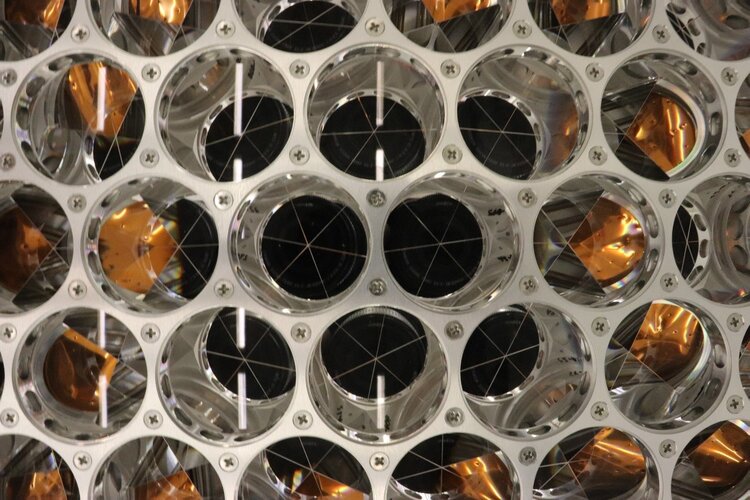
Lunar Pathfinder will orbit in a highly elliptical ‘Lunar Frozen Orbit’, designed to optimise coverage over the Moon’s South Pole, the primary focus of future exploration efforts. For this demonstration, the Lunar Pathfinder satellite will be reoriented in orbit, typically during a continuous five-day experimental window, so that the LRA, the NaviMoon receiver antenna and the X-Band transponder ranging, all located on the same panel of the satellite, together point towards Earth. This will maximise the attainable performances and the joint visibility of these three geodetic techniques, which will be used simultaneously for the first time ever in lunar orbit.
The International Laser Ranging Service currently has four stations capable of laser ranging out to lunar distance, three based in Europe (Grasse, Wetzel, and Matera) and one in the US (Apache Point). In addition, ESA is considering the use of its own Tenerife-based Laser Ranging Station, which is currently being upgraded.



